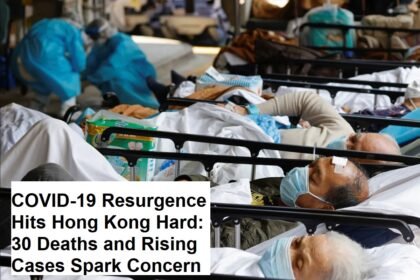In a landmark ruling, Vietnamese property conglomerate Truong My Lan saw her life sentence commuted to 30 years imprisonment on appeal, following her conviction for orchestrating one of the largest money laundering schemes in history, valued at $17 billion (approximately Rp285 trillion). The appellate court, however, upheld the severity of her original sentence while offering a conditional reprieve: Lan can avoid the death penalty if she returns three-quarters of the embezzled assets.
Appeal Court Upholds Sentence, Offers Conditional Mercy
During the appeal hearing on Monday, April 21, 2024, the Ho Chi Minh City High People’s Court affirmed that there were no legal grounds to further reduce Lan’s punishment, citing the “exceptionally serious” nature of her crimes. Despite this, the court introduced a critical stipulation: should Lan repatriate 75% of the stolen funds—a staggering $12.75 billion—her death penalty would be voided, leaving her with a 30-year prison term. Legal experts note this decision underscores Vietnam’s stringent stance on financial crimes while allowing room for asset recovery.
The Original Trial: A Record-Breaking Scandal
Lan, chairwoman of the Van Thinh Phat Holdings Group, was initially sentenced to life imprisonment in April 2023 after a five-week trial revealed her role in siphoning $17 billion through shell companies and fraudulent loans between 2011 and 2022. The sum, equivalent to nearly 4% of Vietnam’s 2022 GDP, exposed vulnerabilities in the country’s financial oversight and sent shockwaves through its real estate sector, where Van Thinh Phat had been a dominant player. Prosecutors detailed how Lan colluded with bankers to approve illegal loans, bypassing regulatory checks and plunging institutions into insolvency.
A High-Stakes Bargain: Asset Return for Survival
The appellate ruling hinges on Lan’s ability to return the majority of the misappropriated assets, a move seen as balancing punitive justice with economic pragmatism. Vietnamese authorities have prioritized recouping losses to stabilize affected banks and mitigate systemic risks. While Lan’s legal team has not disclosed her response, analysts speculate that recovering such vast sums—potentially tied to offshore accounts or property holdings—could prove complex. Failure to comply would reinstate the death penalty, a rare but permissible punishment under Vietnamese law for extreme economic crimes.
Context: Lan’s Rise and Fall
Once a titan of Vietnam’s property boom, Lan built Van Thinh Phat into a conglomerate with luxury residential and commercial projects across Ho Chi Minh City. Her downfall began in 2022 amid a nationwide anti-corruption crackdown led by Communist Party Secretary Nguyen Phu Trong. Dubbed “Blazing Furnace,” the campaign has ensnared thousands of officials and business leaders, reflecting Hanoi’s resolve to curb graft and restore public trust. Lan’s case, however, stands out for its sheer scale, highlighting the nexus between unchecked corporate power and institutional corruption.
Broader Implications for Vietnam’s Economy and Governance
The case has intensified scrutiny of Vietnam’s financial regulations, prompting calls for stricter oversight of lending practices and corporate governance. The State Bank of Vietnam has since tightened loan classifications and risk management protocols, though critics argue systemic reforms are overdue. Economists warn that the scandal’s fallout could deter foreign investment temporarily, even as the government’s aggressive prosecution signals long-term commitments to transparency.
Public and International Reaction
Domestically, the trial has captivated public attention, with many lauding the court’s severity as a deterrent. “This verdict sends a clear message: no one is above the law,” stated Nguyen Thanh Ha, a Hanoi-based legal scholar. Internationally, organizations like the Financial Action Task Force (FATF) monitor Vietnam’s progress against money laundering, with this case potentially influencing the country’s global compliance ratings.
Looking Ahead
As Truong My Lan navigates her reduced sentence and asset-recovery obligations, the case sets a precedent for Vietnam’s legal approach to white-collar crime. With $12.75 billion still at large, authorities face the arduous task of tracing and reclaiming funds—a process that could take years. Meanwhile, the ruling reaffirms the Communist Party’s zero-tolerance policy toward corruption, a cornerstone of its governance strategy as Vietnam seeks to bolster economic resilience and international credibility.
In conclusion, Truong My Lan’s trial not only marks a pivotal moment in Vietnam’s fight against financial malfeasance but also illustrates the delicate balance between judicial punishment and economic restitution in high-stakes legal battles. The world will be watching as this unprecedented saga continues to unfold.









